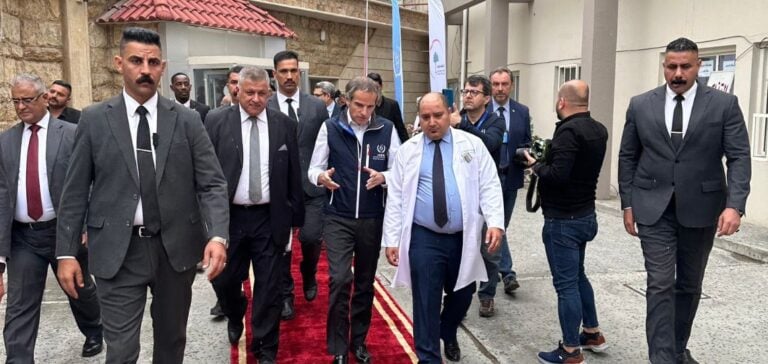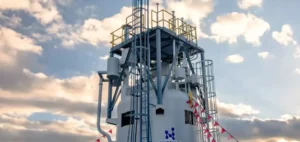Iraqi Prime Minister Mohammed Shia’ Al Sudani and government leaders welcomed IAEA Director General Rafael Mariano Grossi to Baghdad. They discussed Iraq’s peaceful nuclear ambitions and the agency’s support. Grossi affirms the IAEA’s commitment to the foundation of an entirely peaceful program, underlining the growing global interest in nuclear technology. This partnership is aimed at rigorous implementation of non-proliferation standards.
Diversified nuclear ambitions
Iraq is exploring options such as small modular reactors for energy security and water desalination projects. The country has joined the Convention on Nuclear Safety, affirming its commitment to fundamental safety principles. Discussions also focused on collaboration in nuclear medicine, oncology and radiotherapy, with the IAEA’s Rays of Hope program promising more support and training to improve cancer treatment in Iraq.
A complex past, a promising future
A signatory of the Nuclear Non-Proliferation Treaty since 1969, Iraq has been in breach of the treaty under Saddam Hussein. Post-1998, the IAEA supervised the country’s nuclear disarmament. However, between 1981 and 2003, Iraqi nuclear facilities were destroyed or damaged. Grossi’s visit to the Al Tuwaitha site, once the heart of Iraq’s nuclear program, marks a step towards the rehabilitation and peaceful use of nuclear power.
Radioactive waste management strategy
The IAEA and Iraq are working on an integrated national strategy for radioactive waste management. The Al Tuwaitha site is planned as a repository for low-level radioactive waste. Grossi stresses the importance of achieving a successful decommissioning phase, erasing the legacy of the past while ensuring safe and effective waste management.
Iraq’s renewed commitment to peaceful nuclear energy, with the support of the IAEA, symbolizes a new era. This commitment to energy, nuclear medicine and non-proliferation creates a solid foundation for sustainable development and regional security. Iraq and the IAEA show that close collaboration is crucial for a responsible nuclear future.






















